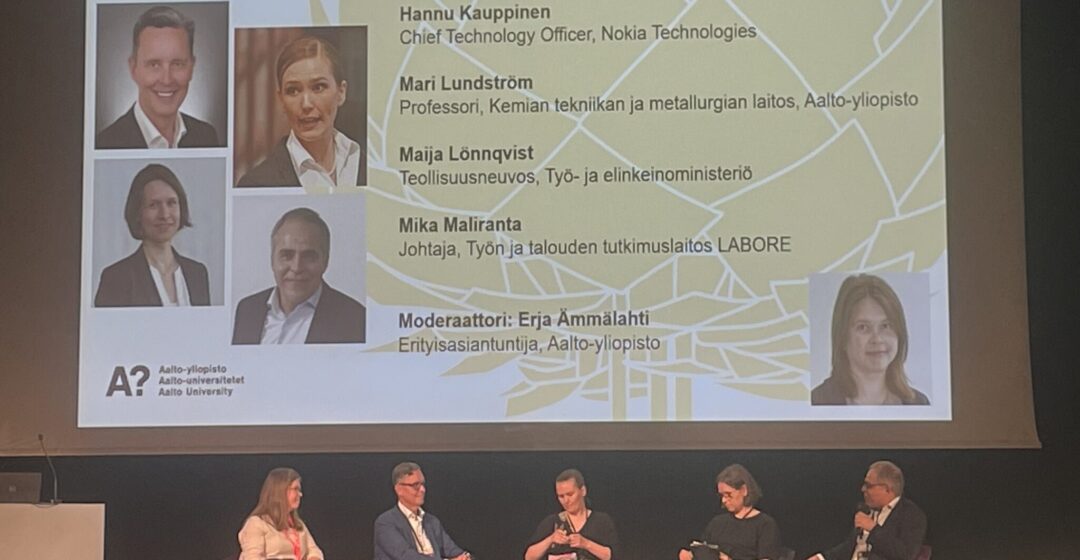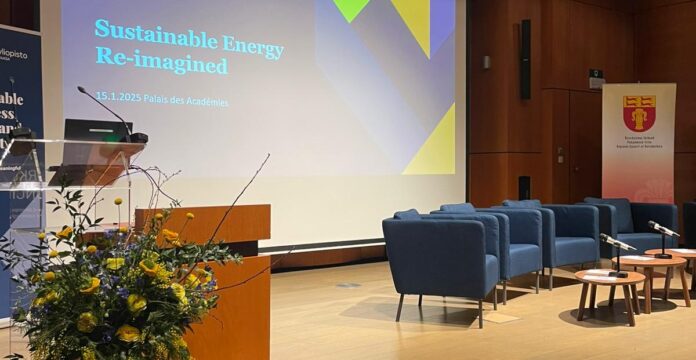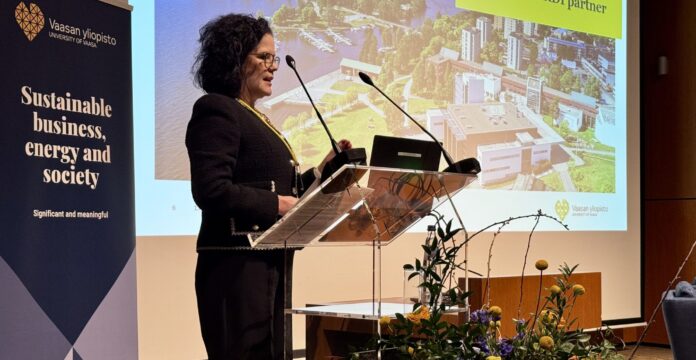Our pre-award team and some of the post award team took part in Research Service Days organized by Aalto University in August. On the first day, we had network meetings and actual Research Service Days started on Tuesday and the next two days were long and fully packed with the latest information. Here are some key takeaways for you!
Katja: This was the first time I attended Research service days, and I was surprised that there were over 450 of us! One thing that struck me the most was one of the keynote speakers, Tuomas Auvinen, Dean, School of Arts, Design and Architecture, Aalto University. He talked about creativity and researchers’ work. How we might sometimes think purely inside of small box and then we enter the real world and things are not so simple out there. How we should think across scientific fields. This subject resonated so well for me, because of my work history. In my previous job I have witnessed interesting projects that combined artists and entrepreneurs or food and hi-tech. This is one thing I would like to see more in our university, more teamwork, and new projects across disciplines. If you have any tips or requests how we on research services can make that happen, please don´t hesitate to contact us! – Katja
Mathias: It was nice to see so many familiar and new faces! The Research Service Days usually kick off with networking meetings, as was the case this year as well. Finn-ARMA, the Finnish Association of Research Managers and Administrators, has several sub-groups which usually meet at the evening of the actual event. A group dedicated to ERC is in the making, which will be great for knowledge-sharing and peer support. Several of the sessions at the Research Service Days were about developing the processes and workflow of research services using different digital tools. As the University of Vaasa is developing the use of Thinking Portfolio it was great to hear the experiences of others. Also, the website https://research.fi/en/ / https://tiedejatutkimus.fi/fi/ is a great resource for all sorts of things related to research in Finland, including open funding calls. Do have a look! – Mathias
Heidi-Maaria: For me, the meeting with the Research Council of Finland (formerly Academy of Finland) is always one the most rewarding happenings. I have worked several years with RCoF proposals, so this subject is close to my heart. The biggest change for the Winter Call has been made regarding the review process. This is the first time when applicants choose the most relevant panel for their proposals. Other changes are minor things but of course important. I will talk more about those details at the Research Café in November.
Then I must say that quite surprisingly the Philosopher and Professor emeritus Esa Saarinen made a strong impact, first by shaking hands with each participant and later with his emotional speech. He spoke about relevant issues like Three Levels of Value: 1) Visible star performance 2) an input to another, that this can successfully do something visibly valuable and 3) enabling for the wider entity to work (free translation, sorry). I strongly feel that this is exactly what we in the Research Services do and what we are: we give some input and that way enable the stars to shine so we must be enablers. Aren’t we? This is something we should remember every day and consider when we develop our services but without forgetting our own resources. – Heidi-Maaria
Virpi: Me and my colleagues from the University of Oulu, Aija Ryyppönen and Riikka Palonkorpi from the University of the Arts Helsinki had an hour long presentation and workshop on the best practices in the research evaluation. We shortly presented the framework for our universities evaluations, since we all had the process year or two ago, our experiences based on the different stages of the evaluation. There were a full room of interested and based on the group discussions in the initial phase you should for example be clear about the purpose and goal, using the templates for self-evaluation and giving the background material and data for the evaluated units. When having the actual evaluation interviews you should make sure there is reflection time between the interviews and if it happens online, make sure the connections works, for example. And after the evaluation the process should not stop there, make sure you use the evaluation results to develop the university, research and processes. Please see The evaluation report of the University of Vaasa. – Virpi





